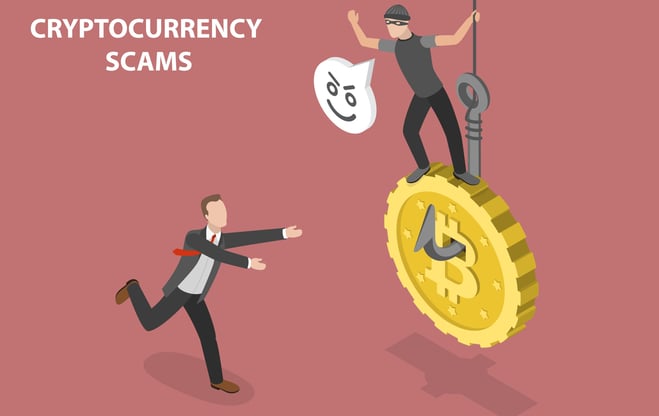Crypto and Bitcoin scams
Crypto scams in India
Pratyusha Vemuri
3/13/20232 min read


The rise of cryptocurrencies, particularly Bitcoin, has been met with both excitement and skepticism across the globe. While some see cryptocurrencies as the future of money, others view them as a tool for illegal activities such as money laundering and fraud. Unfortunately, India has seen a significant rise in cryptocurrency and Bitcoin-related fraud in recent years.
One of the main reasons behind this surge in fraud is the lack of regulation in the cryptocurrency market in India. While the Reserve Bank of India (RBI) has warned against the use of cryptocurrencies, it has not issued any clear guidelines on their use or trading. This has created an environment where scammers and fraudsters can take advantage of unsuspecting investors.
One of the most common cryptocurrency frauds in India is the Ponzi scheme. In this type of fraud, investors are promised high returns on their investments, which are paid out of the funds of new investors. The scheme collapses when there are not enough new investors to pay the returns promised to earlier investors. One such case involved the GainBitcoin scheme, which promised investors returns of up to 10% per month. The scheme defrauded investors of over 8,000 bitcoins worth more than Rs 2,000 crore.
Another common fraud is phishing scams, where scammers create fake cryptocurrency exchanges or wallets to steal investors' private keys or login details. Once they have access to the investor's account, they can transfer the funds to their own wallets, leaving the victim with nothing. In 2018, a Mumbai-based businessman lost over Rs 12 crore to a phishing scam.
Furthermore, there have been instances where people have been duped by fraudulent initial coin offerings (ICOs). ICOs are a way for companies to raise funds by issuing digital tokens that can be traded on cryptocurrency exchanges. However, scammers have taken advantage of the lack of regulation to create fake ICOs, promising investors high returns on their investments. Once they have collected the funds, they disappear without delivering on their promises.
The lack of regulation also makes it difficult for law enforcement agencies to track down and prosecute cryptocurrency fraudsters. Cryptocurrencies operate on a decentralized network, which means that there is no central authority controlling the transactions. This makes it challenging to trace the movement of funds and identify the individuals behind the fraud.
In conclusion, the rise of cryptocurrency and Bitcoin-related fraud in India is a cause for concern. The lack of regulation and oversight has created an environment where scammers and fraudsters can operate with impunity, taking advantage of unsuspecting investors. It is crucial for the Indian government and regulatory bodies to create a regulatory framework that can protect investors from these scams while allowing legitimate cryptocurrency trading and investment. Until then, investors must exercise caution and due diligence before investing in any cryptocurrency-related scheme or platform.
